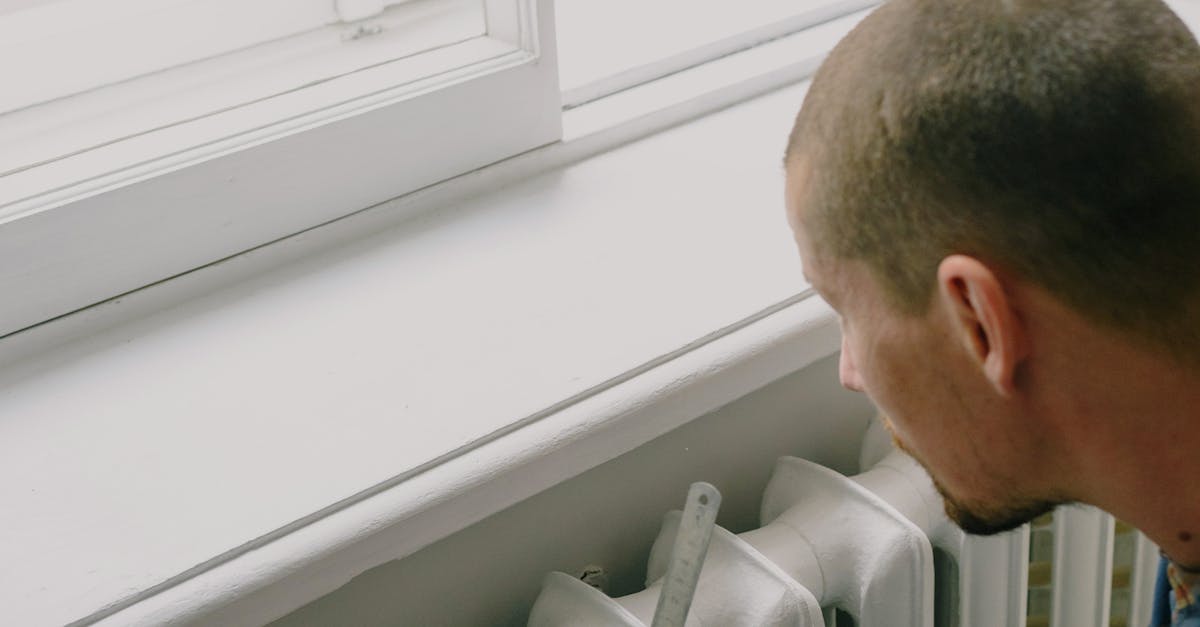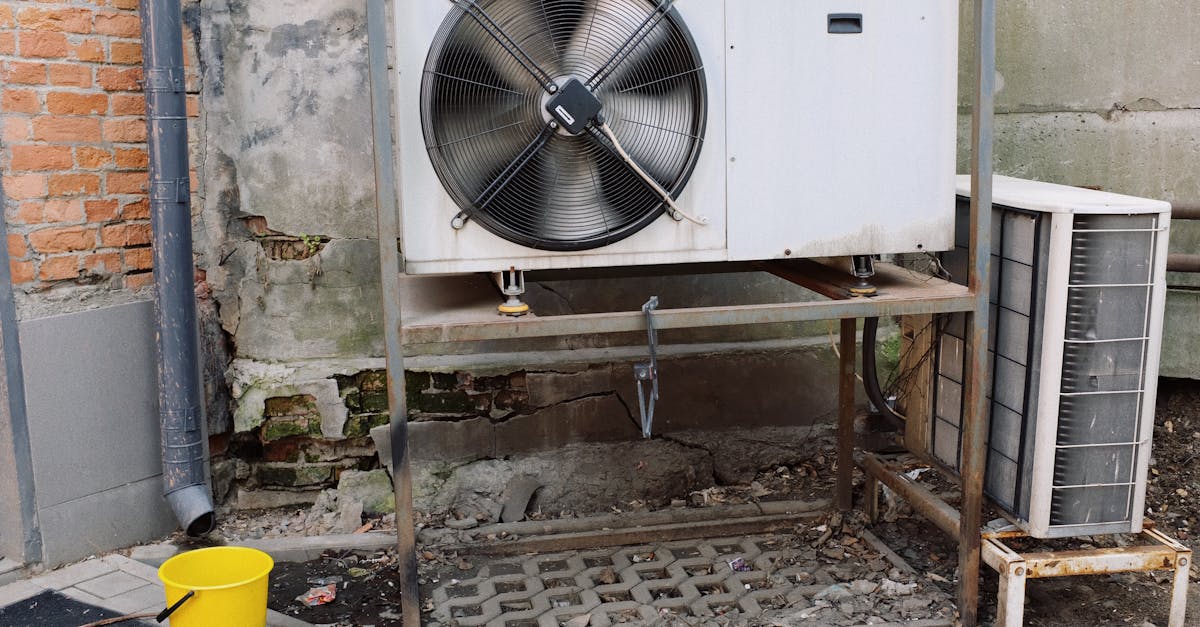
Table Of Contents
Space and Aesthetic Impact
The choice between ducted and split systems can significantly influence the overall aesthetics of a home. Ducted air conditioning systems are typically installed in the ceiling or under the floor, allowing for a cleaner, more unobtrusive appearance. This concealed installation can be particularly appealing in modern homes, where design simplicity and minimalism are valued. On the other hand, split systems are more visible due to their wall-mounted units, which can disrupt the visual flow of a room. Their design may clash with established interior styles, especially in homes where careful attention has been paid to decor.
Furthermore, the spatial requirements for each system also differ. Ducted air conditioning Coventry, West Midlands, for example, requires more extensive installation space, which might not be feasible in smaller residences or apartments. Split systems, while less aesthetically pleasing to some, offer more flexibility concerning placement and installation. Homeowners can choose locations that minimise visibility while ensuring effective cooling. Ultimately, the impact of either system on space and aesthetics will largely depend on individual preferences and the specific architectural features of the property.
How Each System Fits Into Your Home
Ducted systems offer a seamless integration into the architecture of a home. The air is distributed through hidden ductwork, allowing for a clean and uncluttered appearance. This method effectively maintains the visual aesthetics of living spaces as there are no visible units protruding from walls or windows. In newer or renovated homes, this system can add value through its discreet design and ability to provide consistent climate control across multiple rooms.
In contrast, split systems are more flexible and easier to install in existing homes. They consist of an indoor unit mounted on walls or ceilings, which can be strategically placed to maximise efficiency in specific areas. While they provide targeted cooling or heating, their visibility can impact the overall decor of a room. Homeowners in the West Midlands seeking efficient options may find ducted air conditioning West Midlands particularly appealing for larger spaces where aesthetics and functionality must align.
Climate and Usage Factors
Climate plays a significant role in the efficiency and effectiveness of any heating and cooling system. Ducted air conditioning Coventry, West Midlands, is particularly beneficial in regions with varied weather conditions. The ability to provide consistent and uniform cooling throughout multiple areas of a home makes ducted systems appealing for larger properties. In contrast, split systems can be more advantageous for smaller spaces or homes where specific rooms require temperature control independent of others.
Usage patterns are another crucial consideration. If a household tends to use certain rooms more frequently, split systems may offer greater flexibility and lower running costs. Conversely, ducted air conditioning might be more suitable for larger homes where multiple rooms are often occupied simultaneously. Understanding how each system aligns with your lifestyle and comfort preferences can significantly influence the overall cost-effectiveness of installation and operation.
Evaluating System Performance in Different Conditions
When considering the performance of ducted and split air conditioning systems, various environmental factors come into play. Ducted systems often excel in larger homes or spaces where uniform temperature control is essential. They distribute cool or warm air through a series of ducts, ensuring consistent comfort across multiple rooms. This can be particularly beneficial in regions like Coventry, West Midlands, where temperature fluctuations are common.
Conversely, split systems can be more efficient in smaller or zoned areas. Each unit operates independently, allowing for tailored temperature settings in different rooms. This flexibility can lead to energy savings when cooling specific spaces rather than a whole house. As a result, homeowners should assess their unique climate needs and spatial conditions when determining which system might perform better throughout the year.
System Lifespan and Durability
Ducted systems generally have a longer lifespan compared to split systems, often lasting upwards of 15 to 20 years with proper maintenance. Their construction allows for better protection against external elements, contributing to their durability. Regular servicing plays a crucial role in extending the life of these units, ensuring efficient operation and minimising wear and tear. Homeowners in areas such as Wolverhampton, West Midlands, can benefit from routine inspections to keep their ducted air conditioning systems in optimal condition.
In contrast, split systems tend to have a shorter lifespan, typically around 10 to 15 years. Their exposed outdoor units are more susceptible to environmental factors, which can negatively impact their longevity. While they may offer lower initial costs, the need for potential replacements or significant repairs over time can balance out their perceived affordability. Adequate maintenance for split systems is essential to enhance their durability, but they may still lag behind ducted air conditioning when it comes to long-term performance.
Long-Term Costs of Ducted and Split Systems
When considering long-term costs, ducted and split systems present different financial implications. Ducted air conditioning systems in the West Midlands typically involve a higher initial investment due to the complexity of installation and the need for ductwork throughout the property. However, these systems can offer significant cost savings in energy usage over time, particularly for larger spaces or homes with multiple rooms requiring temperature control. Maintenance costs also play a substantial role, as ducted systems may require more extensive upkeep compared to split units, which generally need less frequent servicing.
On the other hand, split systems are often more affordable to install and can be a cost-effective solution for smaller homes or specific areas needing cooling or heating. The reduced upfront costs can be appealing, but they might incur higher energy bills if multiple units are required to cover the entire house. Over time, the cumulative expenses of running several split systems might surpass the long-term benefits of a central ducted system. Ultimately, the choice between ducted air conditioning and split systems depends on individual cooling needs, property layouts, and long-term financial objectives.
FAQS
What are the main differences between ducted and split systems?
Ducted systems distribute air through a network of ducts, making them suitable for larger homes, while split systems consist of individual units that are ideal for smaller spaces or specific rooms.
Which system is more energy-efficient?
Generally, ducted systems can be more energy-efficient for larger homes, as they provide consistent heating or cooling throughout the space. However, split systems can be more efficient for smaller areas where only selective cooling or heating is required.
How do installation costs compare between ducted and split systems?
Ducted systems typically have higher installation costs due to the need for ductwork and additional components. In contrast, split systems are usually less expensive to install, as they require minimal modifications to the home.
What factors should I consider when choosing between the two systems?
You should consider the size of your home, your budget for installation and running costs, the efficiency ratings of each system, as well as your specific heating and cooling needs.
Do ducted and split systems require different levels of maintenance?
Yes, ducted systems generally require more maintenance, including regular cleaning of ducts and filters, while split systems may need less frequent maintenance, focusing mainly on cleaning filters and checking refrigerant levels.


